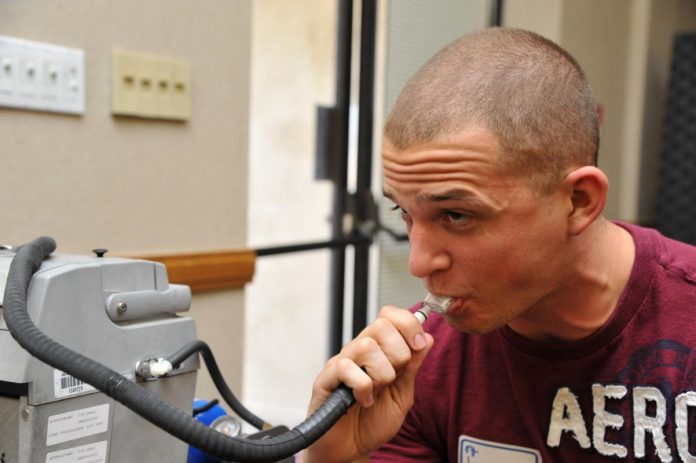Activist movements and political organizations are abuzz with recent advances spearheaded by a student initiative right here at the University of the Fraser Valley, which repurposes existing technology that were previously used to measure alcohol levels.
They stumbled upon this new potential technology accidently, during a joint venture with Kwantlen’s Sommelier Program which was attempting to not only measure a person’s inebriation, but also the types of alcohol they had drank and their tasting habits.
“We had a few first-year sociology students on the team, and they began noticing trends and correlations between our findings, and greater public attitudes on social justice issues,” said fourth-year chemistry and criminology student Alysha Stuben, adding, “it was crazy; stuff like drinking IPAs was directly related to sharing ‘All Lives Matter’ posts, while pale lagers meant you have strong opinions on pit bulls. The results became even more effective when we paired them with a polygraph test and military grade mood rings as part of the procedure.”
Ten months of research, and open source collaboration with universities across the world, has brought about a test that is even more advanced in its measurements.
“Just blow into the hole,” instructed Evan Grewal, an engineering student from UBC, during a recent tech demo hosted by George Soros in Vancouver. “We’ll be able to chart not only your political leanings, but also your level of native support for issues like healthcare, defence spending, and decolonization efforts. The red LED on the side there will light up if anything problematic pops up.”
“Soon, it will even be able to tell if you’ve sincerely used a racial slur in the last 48 hours,” somberly noted electrical psychology major, Chad Urinestrong, one of the other demonstrators. “We’re just trying to figure out how to match that against the subject’s privileged status and musical tastes so there’s no false positives.”
However, not everyone is excited about this technology and its potential. Many critics have warned of its ability to be misused, or the results fabricated — not to mention cascading effects on society and culture at large.
“So what, is everyone going to be forced to get tested now?” demanded perpetually disgruntled professor Jordan G. Peenerson. “That’s very 1984, and quite possibly an attack on my rights. I don’t understand where they — I mean hims — get off in putting up these arbitrary hurdles to acceptability. It’s unprecedented, and has never before existed in society.”
“Between this, Twitter histories, and Russian-led data mining on Snapchat, the next generation of politicians will be molded into milquetoast nerds brainwashed by a politically correct zeitgeist,” warned political pundit Steven Sonogram. “There’s no way this test can ever be 100 per cent accurate, and even it it was, I don’t think anyone is thinking of the ethical implications of what using this — in terms of law enforcement, public trust, and culture as a whole — really means.”
However, the developers and students behind the technology, which has now been informally referred to by the team as the “purity test,” remain dissuaded by critics. Progress has ramped up in the past months, as organizations like Our Momentum and Change Forward scramble to find the latest advantage, before looming election seasons across the globe.


